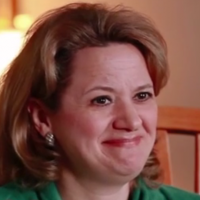Parents
Caring for children with disabilities consumes your life.
We know that. And we want you to realize, through these stories, that you are not alone.
Featured Parent

This is Christine
Christine Walker is a dedicated advocate for children’s mental health and works tirelessly to educate policymakers to enhance the lives of families raising children with hidden disabilities. Christine’s oldest son lives with Asperger’s syndrome, ADHD, and a mood disorder.
Featured Articles for Parents

Choosing Out-of-Home Care for Your Child with Prader-Willi Syndrome
It's only normal for parents to want to be everything to their children. That's a tall order for any parent, but when your child has Prader Willi Syndrome, "everything" is more than any one person can be. Read about how one parent learned that letting experts help manage his son's disorder give him the chance to focus on being a father.

Adopting a Child of Trauma: Gaining Perspective on What Your Child's Behavior and Rage Are Telling You
As the parent of a child with Reactive Attachment Disorder, Lori Hetzel knows that her daughter's intense emotions are trying to communicate what she is unable to express with words. Nadya's extreme behavior is the only tool she has for expressing her fundamental need for security. Read about Lori's efforts to maintain perspective during crisis, and then consider three perspectives to help you as you approach your own child's extreme behavior.

Feeling Guilty When Raising a Child With Special Needs
Parents are often their own toughest critics. When the idyllic picture of what we thought our family would look like is a stark contrast to what the reality is, we add on even more stress by feeling guilty about what we did or didn't do in a a sea of very complex situations. For parents of special needs children, these instances are magnified, but they are recurring thoughts of every parent, nearly every day. Break the cycle of guilt for your sake and for the sake of your child.
Latest Articles for Parents
Loading...
Stop, Think, and Don’t React: Encouraging Parents to Be Proactive – Instead of Reactive or Confrontative – During Times of Conflict
Written By: Rebecca Thomas | Resource Creation By Bridget Morton | Design By Sunny DiMartino
Parents may often find themselves resorting to ultimatums, threats of punishment, removing privileges, or simply throwing up their hands when their child with special needs is having a meltdown and exhibits demanding or irrational behavior. Before exercising rigid authority, which often worsens challenging behavior, parents can instead use personal coping strategies to help themselves stay centered and focused so they remain calm in the face of conflict and, in turn, help their child become more calm as well.
When Children with Special Needs Have Siblings
Written By: Geoff Campbell | Resource Creation By: Bridget Morton | Design By: Sunny DiMartino
Parents may often feel
challenged when raising a child with special needs. But when there are other
children in the family and that special-needs child has a sibling, parents often
feel even greater stress when trying to give both children the time, support,
and attention they need.
Returning to Safety: Understanding and Reducing Self-Injurious Behavior
Written By: Julie Wallach | Resource Creation By: Bridget Morton | Design By: Sunny DiMartino
A seven-year-old girl's increasingly extreme self-injurious behavior requires understanding, thoughtful solutions, and careful planning. After a very challenging period of time, Lyla* receives the adult understanding, special education, and therapeutic care she needs to keep herself safe from her own harm.
When Helping Can Hurt: Parent Enabling of Children with Special Needs
Written By: Agata Antonow | Resource Creation By: Bridget Morton | Design By: Sunny DiMartino
All parents want to help their children, and that can be especially true of parents who have children with special needs. Unfortunately, doing too much for your child may mean that they don’t learn some of the basic life skills they’ll need later in life.
Tracking the Clues: Using Functional Behavioral Assessment to Help Kids with Special Needs
Written By: Agata Antonow | Resource Creation By: Bridget Morton | Design By: Sunny DiMartino
Sometimes, children with special needs exhibit behaviors that seem random and are difficult to understand, leaving parents with the difficult task of figuring out what they mean and how to respond. In these situations, a set of tools known as Functional Behavioral Assessment (FBA) can help. Many parents have not heard of FBA, but counselors and therapists use this approach to systematically gather specific data about behaviors and decide on the appropriate intervention. FBA strategies can also be used in the home by parents struggling to understand specific behavior problems—and how to address them.
Binders and Breakdowns: A Mother’s Introduction to the Individualized Education Plan Process
Written By: Julie Wallach | Resource Creation By: Bridget Morton | Design By: Christy Bui
An Individualized Education Plan takes time to create and implement, often requiring a year or more of testing, meetings, and decision-making to determine appropriate educational instruction and supports for a student with special needs. When Angie digs into the process, she learns more about education than she ever thought possible, and wades through bureaucracy, advocating for her son.
